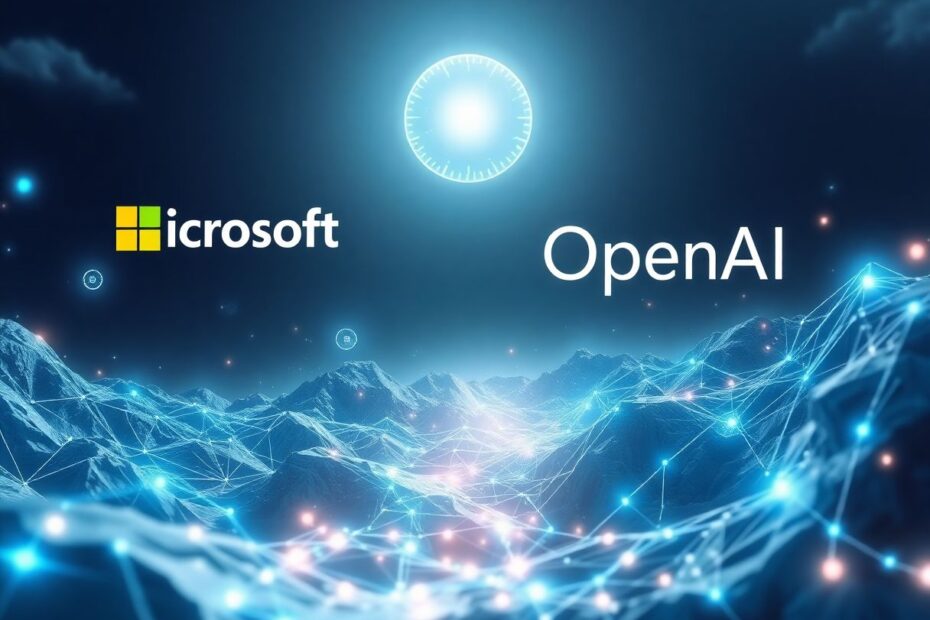In the ever-changing world of artificial intelligence, the partnership between tech giant Microsoft and AI pioneer OpenAI has been a subject of intense scrutiny and speculation. Recent developments suggest that Microsoft's ownership stake in OpenAI may be smaller than previously thought, but this shift could actually be beneficial for both companies and the AI industry as a whole.
The Journey of Microsoft's Investment in OpenAI
From Billion-Dollar Bets to Diluted Stakes
Microsoft's involvement with OpenAI began in 2019 with a headline-grabbing $1 billion investment. This initial foray into the world of advanced AI was followed by several more capital injections, culminating in a reported $10 billion investment in early 2023. These substantial financial commitments led many industry observers to assume that Microsoft had secured a controlling interest in the AI research company.
However, the landscape has shifted significantly since then. OpenAI's recent funding round in October 2023, which raised an impressive $6.6 billion, has likely diluted Microsoft's ownership percentage. While Microsoft did contribute $750 million to this round, they were joined by other major players such as Thrive Capital, Khosla Ventures, Fidelity, and even tech hardware giant Nvidia.
The Current State of Affairs
While the exact figures remain shrouded in corporate secrecy, it's reasonable to infer that Microsoft's stake in OpenAI has decreased. This reduction in ownership comes with several advantages that may not be immediately apparent:
Reduced regulatory scrutiny: With a smaller stake, Microsoft is less likely to face intense scrutiny from antitrust regulators, particularly in Europe where tech giants are under increasing pressure.
Diversified investor base: OpenAI now benefits from a broader range of backers, each bringing unique perspectives and resources to the table.
Enhanced independence: A reduced Microsoft stake potentially allows OpenAI greater autonomy in its decision-making processes, fostering innovation and preventing over-reliance on a single corporate partner.
The Symbiotic Relationship Continues
Despite the apparent reduction in ownership, the Microsoft-OpenAI partnership remains crucial for both entities. This symbiosis is evident in several key areas:
OpenAI's Reliance on Microsoft's Infrastructure
OpenAI's groundbreaking AI models, including the famous GPT series, require immense computational power. Microsoft's Azure cloud platform provides the robust infrastructure necessary to train and run these sophisticated AI systems. This technological backbone is essential for OpenAI's continued research and development efforts.
Microsoft's AI Advancements Through OpenAI
On the flip side, Microsoft has been quick to integrate OpenAI's innovations into its product ecosystem. From GitHub Copilot to the new AI-powered Bing search engine, OpenAI's technology has become a cornerstone of Microsoft's AI strategy. This integration allows Microsoft to stay at the forefront of the AI revolution, offering cutting-edge capabilities to its vast user base.
Challenges on the Horizon
While the partnership has been fruitful, it's not without its challenges:
Cost considerations: As OpenAI's models grow more complex and resource-intensive, the company may find Microsoft's cloud services increasingly expensive, potentially leading to friction.
Technological dependence: Microsoft's heavy reliance on OpenAI for its AI capabilities could become a vulnerability if OpenAI's technology were to fall behind competitors or if the partnership were to sour.
Intensifying competition: The AI race is heating up, with giants like Google, Meta, and Amazon making significant strides. OpenAI's current lead is not guaranteed to last, which could impact the value of Microsoft's investment.
Financial Implications and Future Projections
Despite the potential decrease in ownership stake, the financial implications for Microsoft remain significant. Industry analysts project that OpenAI could reach a staggering $100 billion in revenue by 2029. As the primary cloud provider for OpenAI, Microsoft stands to benefit enormously from this growth, even with a reduced ownership percentage.
This projected growth underscores the wisdom of Microsoft's strategy. By maintaining a strong partnership without the burden of majority ownership, Microsoft positions itself to reap substantial rewards while mitigating risks associated with full control.
A New Model for Tech Partnerships
The evolving nature of Microsoft's stake in OpenAI may well represent a new paradigm for tech partnerships in the AI era. This approach balances the benefits of close collaboration with the flexibility and reduced scrutiny that comes with a more limited ownership stake.
As we look to the future, several key areas warrant close attention:
Development of competing AI models: How will Microsoft balance its reliance on OpenAI with its own internal AI development efforts?
Regulatory landscape: Will the reduced ownership stake help navigate the increasingly complex world of AI regulations and antitrust concerns?
Market dynamics: How will other tech giants respond to this partnership model, and will we see similar arrangements emerge in the industry?
Conclusion: Adapting to the AI Revolution
The apparent reduction in Microsoft's ownership of OpenAI is not a retreat, but rather a strategic realignment that positions both companies for sustainable growth and innovation in the competitive landscape of artificial intelligence. It demonstrates a sophisticated approach to technology partnerships that may set a precedent for how large tech companies engage with innovative startups in the future.
As we continue to witness the unfolding of the AI revolution, the Microsoft-OpenAI partnership serves as a fascinating case study in corporate strategy, technological collaboration, and the delicate balance between investment and independence in the tech world. It's a reminder that in the rapidly evolving field of AI, adaptability and strategic partnerships often trump outright ownership.
The tech industry will be watching closely as this relationship continues to evolve, potentially reshaping our understanding of how giants and startups can work together to push the boundaries of what's possible in artificial intelligence. As we move forward, it's clear that the Microsoft-OpenAI story is far from over – it's just entering a new, exciting chapter.
